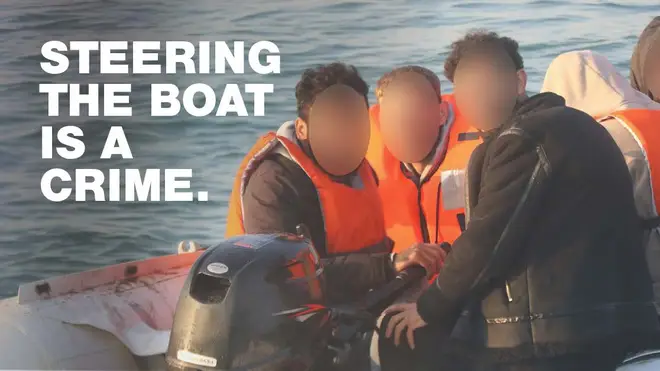
Nick Ferrari 7am - 10am
21 December 2020, 14:04

Ads will tell migrants they risk being sent back to Europe even if they make it to the UK’s shores.
Migrants hoping to enter the UK will be shown “hard-hitting” geo-targeted adverts via social media in a bid to deter people from making dangerous attempts via the English Channel.
From Wednesday, the adverts will appear to migrants located near border hotspots via Facebook and Instagram, warning they could be sent back to mainland Europe even if they successfully make the journey across.
The Home Office said the campaign will include activity to undermine and disrupt organised criminal gangs who make money from exploiting vulnerable people, aiming to tackle disinformation spread by smugglers.
Use of trained dogs and scanners to detect people breathing are among the key messages in the adverts, as well as informing migrants that the UK asylum process is no better than in France, Belgium or other EU states.

“We are determined to make this route completely unviable and are working tirelessly to stop migrants from coming to the UK illegally, at every step of their journey,” said clandestine Channel threat commander Dan O’Mahoney.
“Criminals are exploiting vulnerable people for profit and are selling false dreams of life in the UK. This new campaign will aim to dissuade migrants from making this dangerous and unnecessary journey.
“This campaign will build on our work with the French to stop people leaving French beaches and dismantle people smuggling gangs, while also fixing the asylum system to make it firmer on those who seek to abuse it and fairer on those in genuine need of our help.”
The adverts will appear along coastal areas of Belgium, including Brugge and Zeebrugge Port, as well as Calais, Dunkirk, Grande-Synthe, Gravelines, Saint-Martin-Boulogne, Nord-Pas-de-Calais, Bourseville, Saint-Quentin-en-Tourmont and Picardie in France.
Messaging will be translated into Farsi, Arabic, Pashto and Kurdish to reflect the top five nationalities of migrants, which are Iraqi, Iranian, Syrian, Sudanese and Afghan.
The campaign also promotes vehicle security advice to the haulier industry and drivers with the aim of increasing the use of vehicle security measures and checks.